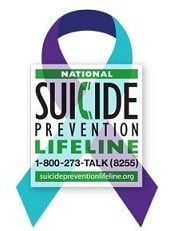Chances are that if you’re reading this, you are not the person with a chemical addiction. You are probably reading it because someone you know, love and care about may have one. So, this article is intended to arm you with some knowledge to understand the disease better.
The first “D” is already mentioned. Addiction is a Disease. Many people think it is a choice and therefore can be turned off or on like a spigot. Be assured this is not the case. Perhaps the person had a choice at one time, but now, that choice has developed into a disease.
The second “D” is that of Denial. A large part of the disease includes a self-deceptive mechanism that allows the addicted person to continue destructive behavior because “there is no problem.” The addict believes this and continues onward. Or, perhaps the denial shows up in the form of blaming others or events for their use of the drug of choice. Regardless, denial continues until the users can no longer avoid the consequences of their actions. Maybe they were fired, or lost their family or lost their home.
However, even these life-altering events don’t necessarily make the addict seek help. Oftentimes, they go to the third “D,” Detour.
Detour is a behavior pattern by the addict that manifests by changing people and surroundings in an attempt to change the disease. That is, they may change what they drink or change the drug they use. They may change when they are using or where. They may even attempt to go to AA or NA meetings to appear to be sincere about recovery. Over time, though, the user and the people around him/her realize no progress is being made, so the addict goes to the next step.
The fourth “D” is Delay, which is a tactic to put off any attempt at abstinence or to postpone steps to regain healthy living patterns. Examples: “I’ll go to a marriage counselor, but I’m not going to a drug counselor.” Or, “I’ll go to the rehab near home (where my user-friends can visit), but I won’t go to the one 100 miles away (where I’ll be forced to face my habits with my fellow addicts and the counselors).”
The addict may even acknowledge he/she needs help…but not yet!
People with chemical dependencies are sick. They will continue to be sick until these internal and self-deceptive practices cease. Getting help through counseling can begin the healing process, so it’s of prime importance to begin counseling as soon as possible. Tracy Crain can help you, your addicted loved one, and your family. Reach out to her now.






